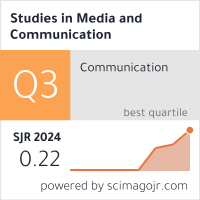The Associative Field of the Concepts “Japan” and “ウクライナ” (Ukraine) based on the Results of an Associative Experiment among Japanese and Ukrainians as the Cultural Stereotypes Evidence
Abstract
The paper attempts to identify and describe the typical cultural stereotypes of Japanese about Ukraine and0000000000000000 of Ukrainians about Japan on the basis of data gained from a free associative experiment based on stimulus words Japan and ウクライナ (Ukraine). The results of the free associative experiment revealed the associative field of the proper name concept Ukraine among Japanese (Russia, Africa, Europe, Uruguay, Uganda, cold, beautiful women, war, dangerous, black soil, Chornobyl), whereas the associative field of the proper name concept Japan contains lexemes samurai, geisha, sakura, Fujiyama, Fukushima, sushi, Sony, Toyota, anime. According to the qualitative classification of associations, the following are syntagmatic (Ukraine – cold, dangerous; Japan – distant, exotic) and paradigmatic (Ukraine – Russia, Africa, Europe, Uganda, Chornobyl, black soil, war, beautiful women; Japan – Fujiyama, Hiroshima, samurai, geisha, sakura, sake, sushi, Toyota, hentai), with paradigmatic associations being more widely spread. The peculiarity of the Japanese reactions to the word-stimulus Ukraine is the lack of individual reactions, but the presence of phonetic ones, which is explained by the shallow level of awareness of Ukraine in Japan. The prevalence of qualitative reactions with a negative assessment can be noted. A feature of the reactions of Ukrainians to the word-stimulus Japan is the lack of hyperonymic and phonetic reactions. Also, due to the great interest in Japan among Ukrainians, some individual associations can be found. In both cases, no synonymous and causative reactions can be explained by the characteristics of the stimulus words themselves. Many meronymic and qualitative reactions can be explained by those cognitive mechanisms being more accessible. As for the general image of Japan among Ukrainians, the image of exoticism and technology can be observed. The associative experiment proved that both nations are influenced by stereotypes about each other, which can be overcome through educational campaigns.
Full Text:
PDFDOI: https://doi.org/10.11114/smc.v10i3.5839
Refbacks
- There are currently no refbacks.
Studies in Media and Communication ISSN 2325-8071 (Print) ISSN 2325-808X (Online)
Copyright © Redfame Publishing Inc.
To make sure that you can receive messages from us, please add the 'redfame.com' domain to your e-mail 'safe list'. If you do not receive e-mail in your 'inbox', check your 'bulk mail' or 'junk mail' folders.
If you have any questions, please contact: smc@redfame.com
------------------------------------------------------------------------------------------------------------------------------------------------------

